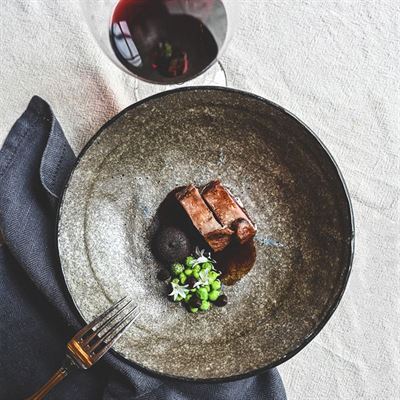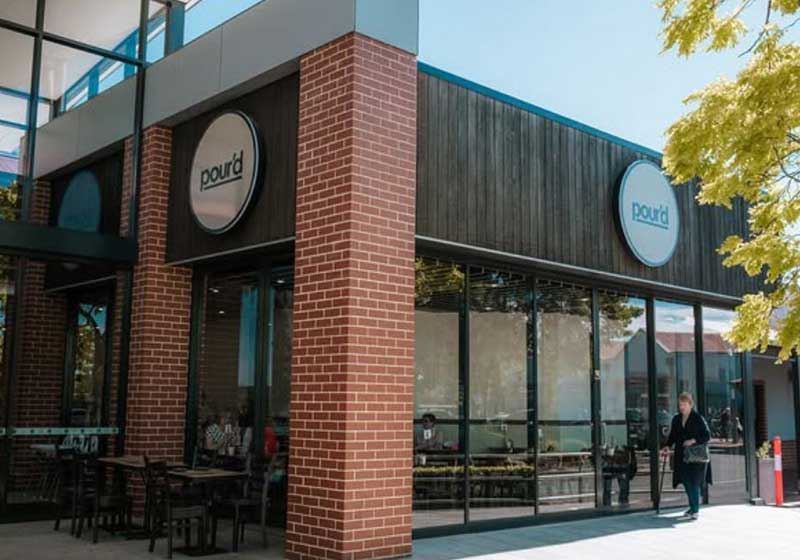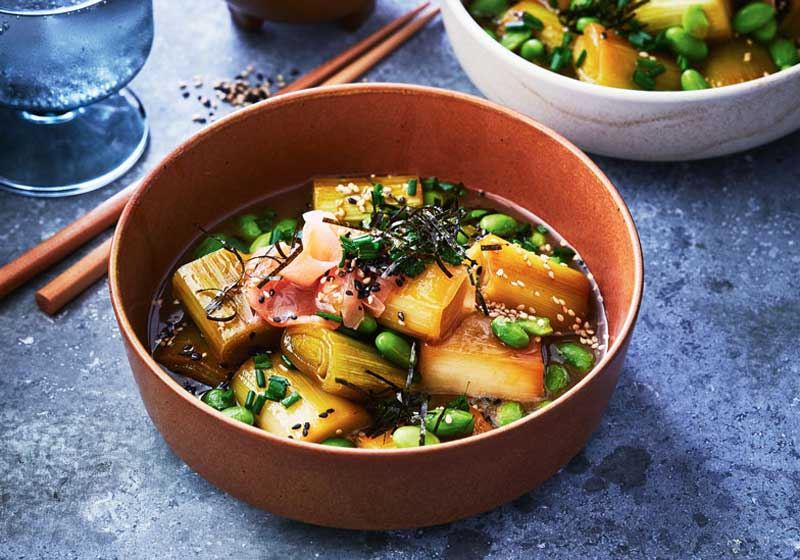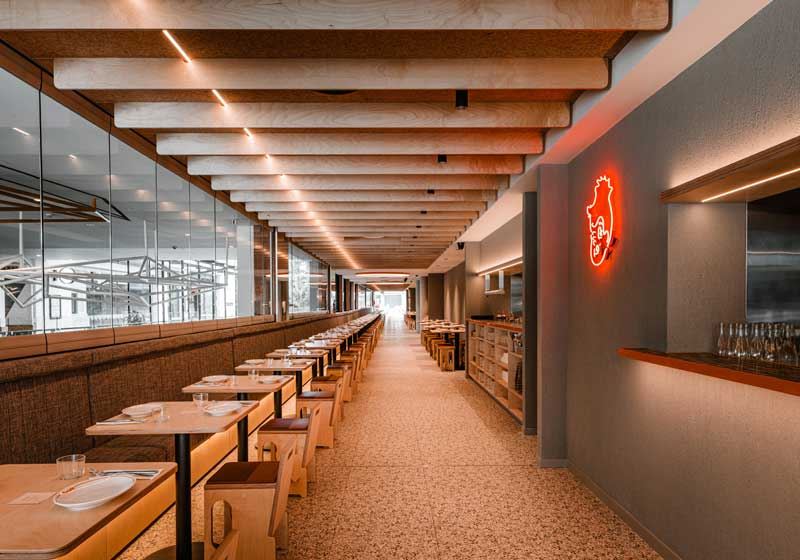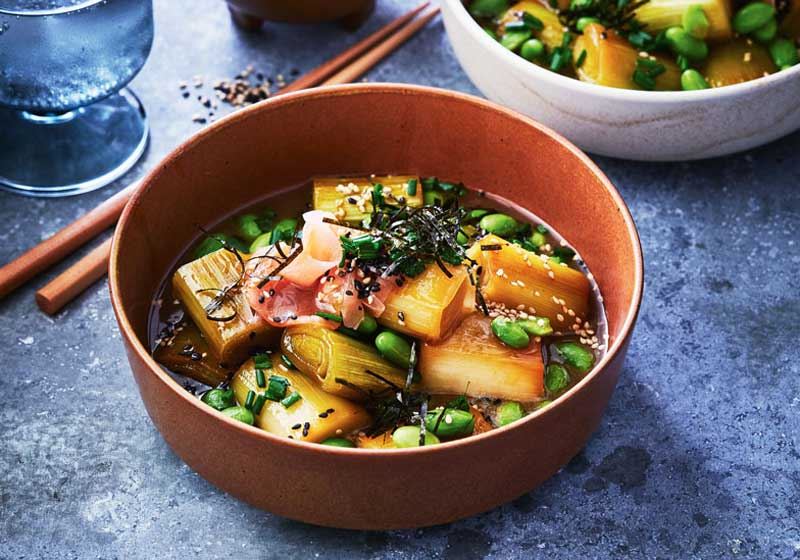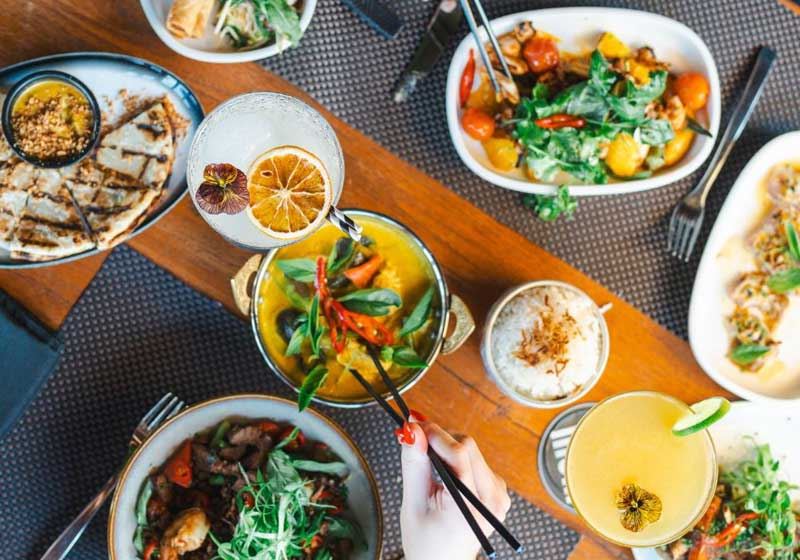By Laura Rancie.
One of the great things about being a food writer is the research, not only eating exceptional food but also learning the stories behind Chefs, Winemakers, providores and farmers.
A beautiful short film recently hit my desk, produced by Voyager Estate - a fully certified organic Winery in Margaret River, WA. I was so impressed that I knew I must speak to the team behind the film and learn the head Winemakers story.
When I sat down with Tim Shand, Head Winemaker at Voyager Estate I knew immediately that I was going to like him. He is vivacious, approachable and full of stories.
We joke about our French, me being French and him having spent time there as well as in Italy during the 2006-2008 vintages. His favourite cities are Burgundy and Bordeaux. We instantly have common ground, given my family is from Burgundy.
Tim, explain the differences you saw between Bordeaux and Burgundy:
They’re both so polarising. Naturally, everyone loves those French wines, but I also love the way the two cities are structured.
Bordeaux is more prestigious and corporate - lots of banking - and the city owns the wineries of Bordeaux. Burgundy on the other hand is more organic in its approach, more family-owned and run. There are smaller plots and smaller wineries and that’s really appealing. Culturally, the wine is much more aligned with the food and lifestyle because everyone is living and eating and drinking Burgundy every day.
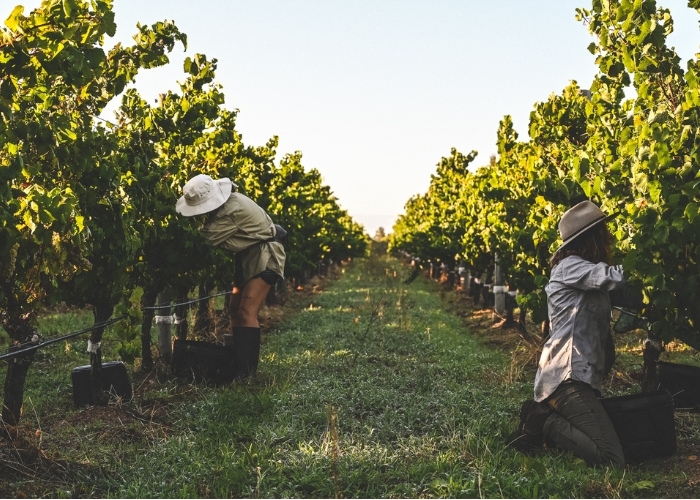
How did you become a winemaker?
I’d like to say it happened early, that I got tapped on the shoulder. There are many regions and families in Australia where they know that wine is in their career path. Whereas for me, growing up in WA it wasn’t even on the radar. My parents drank Swan Valley wines or Evans and Tate. We didn’t have a wine culture in our house, we weren’t matching food and wine at the table.
When I was about 20 or 21, I went to Africa and saw the wine going on over there and thought WOW you can do this for a living?! I loved that in a day you could do so many things like tastings, walking the vineyards, marketing, finance,and hospitality.
I realised, ultimately you can taste what you do! Whether it’s at the end of the day, a month or a year. You can say, all this work you put in, you can take it home and enjoy it. That was the appeal!
You’ve been described in the media as innovative. Why is that?
That’s such an interesting question. There’s nothing new in wine, it’s all been done. People have been messing about with terracotta and quivery for so long and everything is 3000 years old in our game, which is the charm frankly. Innovation, to me, is seeing what the market is doing, putting together three or four concepts and spotting the opportunity between those things that people haven’t put together yet and being the first to do it. That would be innovation for me.
This year every grape at Voyager has been certified organic. What kind of achievement is that?
It is a big achievement! Certified is an important word in that. In our industry people like to throw the word around, saying they’re organic philosophically or in practice. In an industry that is known for greenwashing, that just means, they’re organic until it is inconvenient. Until there is rain, or an insect that wants to eat everything and then go and nuke it. Unfortunately, that’s the cold hard reality.
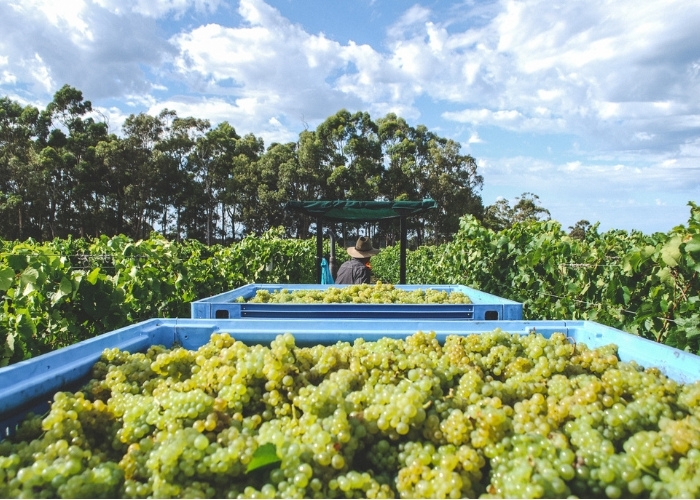
Voyager uses the word integrity and that’s the combination of saying something but doing it with substance. What certification does, is you’re throwing open your gates and asking for someone to come and audit and show that you are doing what you say you do, by a set of really strict guidelines.
Bureaucratically it takes a lot of time and we have to jump through a lot of hoops, but what it means is that when people across the world drink our wines and they see the label on the back of the bottle they know what that means. They know what we have done and what we haven’t done, for every wine, every year. That certification is very hard to get, and we are so proud of it.
For Voyager, it has been 19 years of trial and error and implementing farming practices. Take us with you on that journey of getting certified:
The big thing when you go organic is you take out systemic sprays which are pesticides against fungus, insects and weeds. You need to address all three but really, it’s a proactive way of farming rather than reactive. How can we build wine and soil health so that we don’t have to spray? How can we get ahead of the problem?
Most people will spray something once they need to and we don’t have that option. Organics doesn’t say you must have ducks, but it does say you have fewer things to combat snails (as an example) with. Therefore, you need to introduce something living. Organics is big on animals in agriculture. So we got ducks and chickens and sheep.
They’ve got gut bacteria, so when they’re eating bugs or grass, they’re depositing their manure which introduces different bacteria, fungus and things into the soil, so they’re not just crucial for getting rid of pests but also for the nitrogen cycle and the biomass of the soil.
What do sheep and wine have in common?
They only come in when there are no shoots or green material on the vine. Winter is all about sheep. The biggest problem with organics is we can’t spray herbicides, so the sheep eat the weeds under the vines in the most crucial way possible and they go in and clean up the weed activity, when it’s too wet for tractors. We need their grazing and the re-allocation of the nutrients in their faecal matter. They’ll be in the block for 2-3 days, at a time.
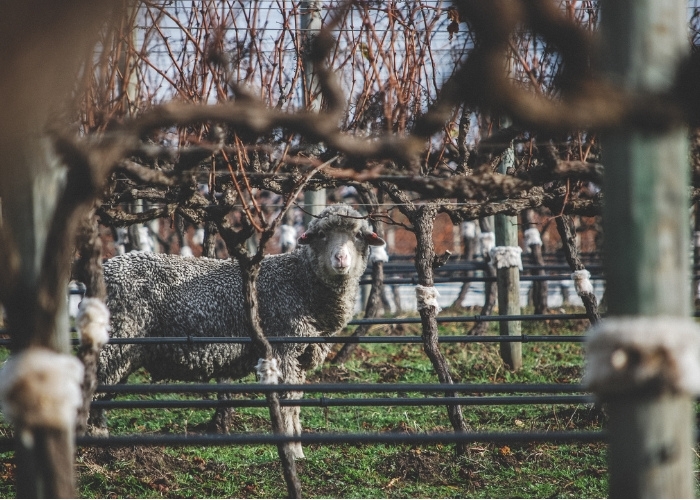
Having started at Voyager, almost a year to the day, how did you take to the organic approach to winemaking?
Going organic is so visceral. For nine months of the year, you are living the bumps of being natural. Hopefully what I’ll get used to is being more comfortable with that ride.
Voyager grows both Cabernet and Chardonnay. What are those two growing conditions like?
It’s quite unusual for a region to stamp themselves as both. Usually in the Yarra Valley or Tassie or Adelaide Hills it's Pinot and Chardonnay.
Bordeaux is Cabernet and Sauvignon Blanc, Napa Country is a bit the same. It is quite unusual that we grow both. What it speaks to is an unusual and unique part of Margaret River with proximity to the Indian and Southern Oceans. The area juts out on a little cape on the southwest corner of Australia.
We have a warm WA climate similar to the Mediterranean and it should, by all rights, be too warm for Chardonnay but what mitigates it is the Southern Ocean’s cooling breeze influencing the afternoons, right off the Southern Ocean. That moderates the temperatures and we rarely get above 28 C in Summer.
Whereas Mornington, Adelaide Hills and Yarra Valley have colder Winters but the heat is hotter.
We get away with Chardonnay. When everything goes right, as it did this year, it has the acidity of those cooler regions, with a lot more fruit, resins and power.
What Cabernet gets at the other end, is an amazing long Autumn. Whereas warmer climates like McLaren Vale and Barossa, Heathcote and the Hunter are warm where everything ripens in a hurry. Cabernet is so late it almost hits a plateau over here and you get lovely late March/early April weather when you’re not accumulating sugar or getting overly ripe.
There is time for complexity in your fruit so that’s where the balance of perfume and red fruit in Margaret River Cabernet comes from, but with a lot of weight behind it. It’s bookended the two, weirdly. Whereas in the Yarra Valley it's Pinot and Chardonay all at the same time at the start.
Can you describe terroir to us?
The word terroir is weighted towards the combination of soil, climate and humidity. Terroir also takes into account access to intelligent, hardworking and creative people influencing the quality of your wine. In Burgundy, the way the people are so present and in touch with their wines and vines and the way their family businesses are influences their terroir.
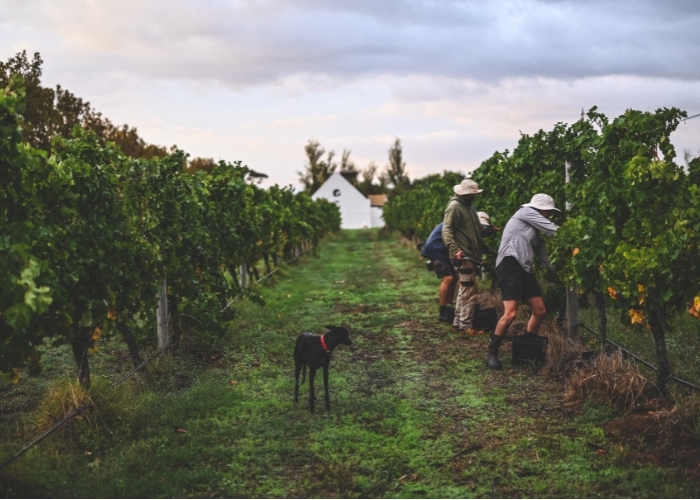
What about the terroir in Margaret River?
In terms of soils, what makes this part of the world unique is that they’re old soils. They are not high in nutrients so there’s a struggle to our soils for the vines, particularly Cabernet.
The Leeuwin Ridge runs north to south a couple of kilometres in from the ocean and is very high in ironstone gravel, which is very important. Structurally the soil is very well draining but balanced by a clay base down 1.5 metres.
The soil around the vine roots is very well-draining and good for vines but if they need to tap into water in a warmer year, then they can work down to that in a balanced way. Here, if we have a dry year, the topsoil is really lean and hard, but the old vines are working their way down to the clay and keeping the freshness; if we have a wetter year the water is rolling through the soils really well and we’re not getting dilution from rain.
That’s the key element. The old ironstone gravel soils over clay, and limestone and granite underneath that. They’re interesting and unique soils.
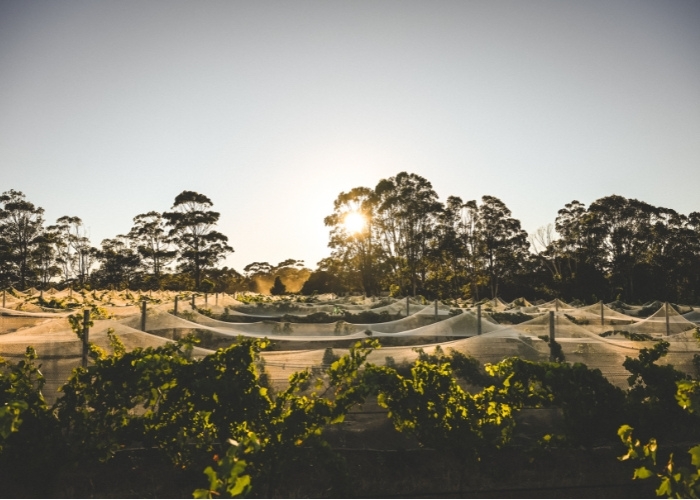
Let’s say it’s the weekend and you have a few rare hours to yourself. What are you drinking?
Chardonnay, every time! It’s a very exciting grape and we’re lucky we grow Chardonnay as well as anywhere else. You can enjoy it knowing you’re playing in that space and you can have a Tassie, Yarra or a Burgundy and it’s inspirational.
What are the benefits of organic wine?
Traditionally, there are always residues of chemicals in the wine, when you are spraying systemics. Our workers are healthier because they’re not spraying chemicals and they’re seeing the land they work on regenerate and become alive, naturally.
The quality too – there is objective evidence that fresh produce, grown organically has more flavour and nutrients than conventionally grown produce. Therefore, flavour compounds and flavonoids in the wine will also be increased under an organic system. You should get more flavour, vibrancy and brightness too.
Then there’s the land health. People can know that the very precious piece of land we farm doesn’t have a nitrogen runoff. We are sequestering more carbon in the soil, we have an abundance of insects, birds and microbial life. We‘re supporting a healthier corner of the world.
We want to show it can be done so other people looking on can want to do the same. Or maybe if they can’t do certified yet, they can have a crack at getting closer to that.
To watch Voyager Estate's journey to becoming organic, see here.


